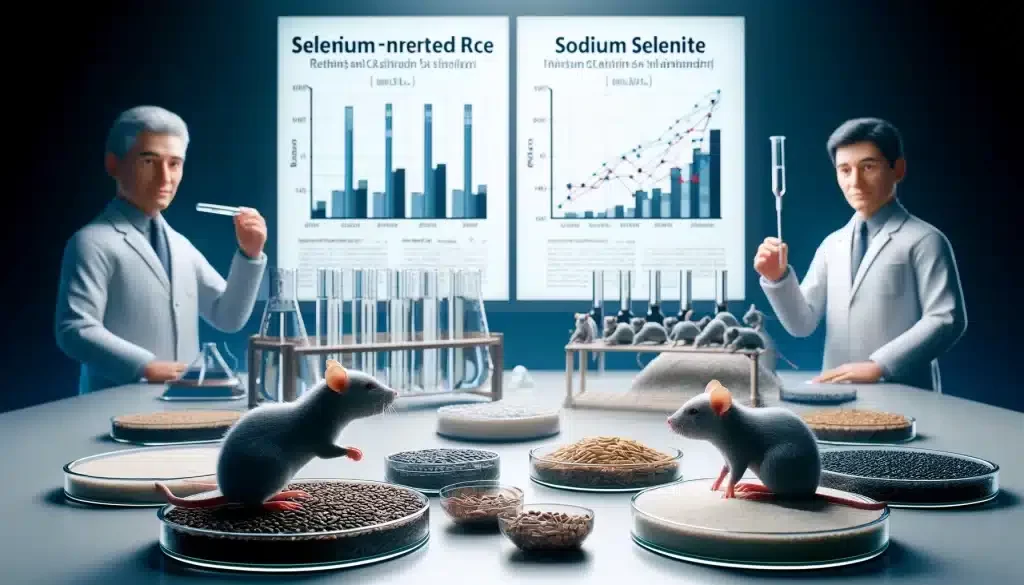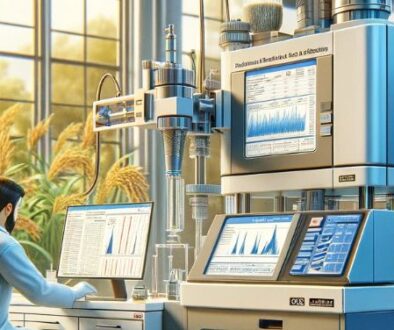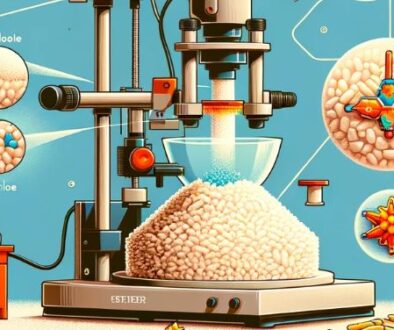Comparison Of Bioavailability Between Selenium-Enriched Rice And Sodium Selenite In Low-Selenium Model Rats
Exploring selenium-enriched rice’s superior bioavailability and antioxidant effects compared to sodium selenite in selenium-deficient rat models, highlighting health benefits and research implications.
Objective To establish a selenium-deficient rat model and compare its bioavailability effects on selenium-rich rice and sodium selenite. Methods 81 male SD rats aged 3-4 weeks were randomly divided into normal control group and low-selenium model group to establish a low-selenium rat model. The low-selenium rats were randomly divided into: low-selenium model group, low- and high-level sodium selenite groups, and low- and high-level selenium-enriched rice groups. They were fed corresponding feeds; they were sacrificed after 8 weeks, and whole blood and tissue selenium were measured. content, GSH-PX, SOD activity and TrxR, MDA content in serum, liver and kidney. Results (1) Compared with the low-selenium model group, the whole blood and tissue selenium contents, serum, liver, and kidney GSH-PX, SOD activity, and TrxR contents in each selenium-enriched group were increased, and the MDA content was decreased (P<0.001). (2) Heart and liver selenium content and liver TrxR content: the high-level selenium-enriched rice group was higher than other selenium-enriched groups (P<0.05); serum MDA content: the high-level selenium-enriched rice group was lower than other selenium-enriched groups (P<0.05) 0.05); Liver and kidney GSH-PX and liver SOD activities: the two high-selenium groups were higher than the two low-selenium groups (P<0.05); liver MDA content: the two high-selenium groups were lower than the two low-selenium groups (P<0.05). P<0.05); Kidney selenium content and serum TrxR content: the high-level selenium-enriched rice group was higher than the low-level selenium-enriched rice group. Conclusion Selenium-enriched rice has better bioavailability than sodium selenite. Selenium-enriched rice with high selenium content can help improve the antioxidant capacity of low-selenium model rats.
Objective
The essential trace mineral selenium plays a pivotal role in maintaining health, primarily through its inclusion in the active site of enzymes involved in antioxidant protection and thyroid hormone metabolism. Recognizing the need for effective dietary selenium supplementation strategies, particularly in populations and models experiencing selenium deficiency, this study aims to establish a selenium-deficient rat model. It compares the bioavailability and antioxidative effects of selenium-enriched rice to those of sodium selenite, a common inorganic selenium supplement.
Methods
In this carefully designed study, 81 male Sprague-Dawley rats, aged 3-4 weeks, were initially categorized into two groups: a normal control group and a low-selenium model group, the latter established to simulate selenium deficiency. Following this, rats in the selenium-deficient group were further subdivided into five experimental cohorts: a control group continuing on a low-selenium diet and two sets of groups receiving either low or high levels of sodium selenite or selenium-enriched rice for eight weeks.
To assess the effectiveness of these interventions, comprehensive measurements were taken post-sacrifice. These included the determination of selenium content in whole blood and tissues, as well as the assessment of key antioxidative markers: glutathione peroxidase (GSH-PX), superoxide dismutase (SOD) activity, thioredoxin reductase (TrxR), and malondialdehyde (MDA) content across serum, liver, and kidney samples.
Results
The results reveal significant improvements in selenium status and antioxidative capacity among rats supplemented with selenium, irrespective of the source. Notably, those fed high levels of selenium-enriched rice displayed superior outcomes in several key parameters compared to their counterparts receiving sodium selenite. Enhancements were particularly evident in whole blood and tissue selenium levels, enzymatic activities (GSH-PX, SOD, TrxR), and a marked reduction in MDA content, indicating reduced lipid peroxidation.
Further comparative analysis underscored the superiority of high-level selenium-enriched rice over other selenium supplementation strategies. This group exhibited higher selenium content in the heart and liver, increased liver TrxR activity, and lower serum MDA levels, alongside greater enhancements in liver and kidney GSH-PX and liver SOD activities.
Conclusion
The findings of this study underscore the exceptional bioavailability and antioxidative benefits of selenium-enriched rice, especially when administered at higher concentrations, in addressing selenium deficiency in rat models. Compared to sodium selenite, selenium-enriched rice not only effectively elevates tissue selenium levels but also enhances the antioxidant defense system more significantly. These results advocate for the potential health benefits of incorporating selenium-enriched rice into dietary regimens to mitigate selenium deficiency and its associated oxidative stress, offering a promising avenue for future nutritional interventions and research.
For futher details of this article and research, feel free to contact our team for assistance.
Original research was done by Zheng Tingting, Wang Hongping, Sun Hui, Wang Lei, Rong Zuyuan, Wang Juanxiu, Li Yali, Deng Yuanle, Yin Wenya
About ETprotein:
ETprotein, a reputable plant protein vegan protein Chinese factory manufacturer and supplier, is renowned for producing, stocking, exporting, and delivering the highest quality organic bulk vegan protein and plant proteins. They include Organic rice protein, clear rice protein, pea protein, clear pea protein, oat protein, watermelon seed protein, pumpkin seed protein, sunflower seed protein, mung bean protein, peanut protein, various of plant peptides etc. Their offerings, characterized by a neutral taste, non-GMO, allergen-free attributes, cater to a diverse range of industries. They serve nutraceutical, pharmaceutical, cosmeceutical, veterinary, as well as food and beverage finished product distributors, traders, and manufacturers across Europe, USA, Canada, Australia, Thailand, Japan, Korea, Brazil, and Chile, among others.
ETprotein specialization includes exporting and delivering tailor-made protein powder and finished nutritional supplements. Their extensive product range covers sectors like Food and Beverage, Sports Nutrition, Weight Management, Dietary Supplements, Health and Wellness Products, and Infant Formula, ensuring comprehensive solutions to meet all your protein needs.
As a trusted company by leading global food and beverage brands and Fortune 500 companies, ETprotein reinforces China’s reputation in the global arena. For more information or to get a free sample of their protein products, please contact them and email sales(at)ETprotein.com today.












